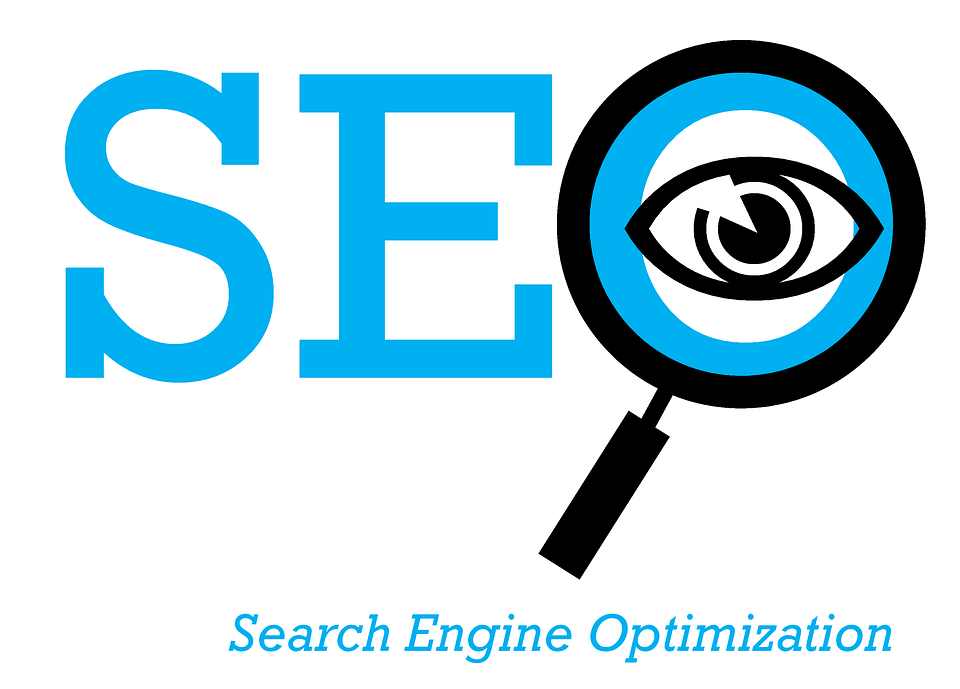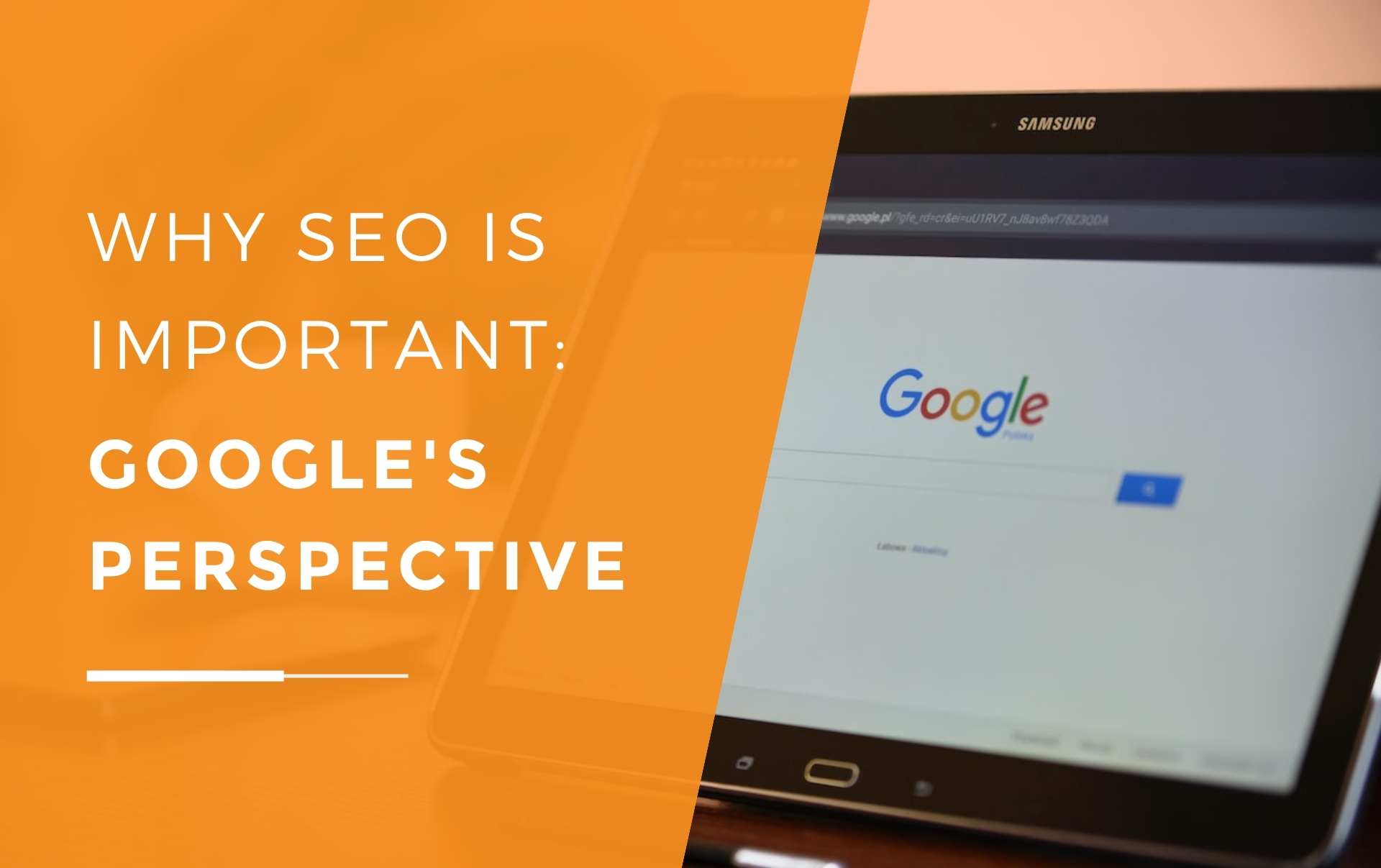Quality Matters: What The Google Search Quality Evaluator Guidelines Mean For Your Content Marketing & SEO
by Will Williamson on 16-May-2024 10:30:00
 In March 2024, Google updated its Search Quality Evaluator Guidelines to clampdown on “Untrustworthy Webpages or Websites” (p35, section 4.5). As the first update since November 2023 (a near lifetime in Google terms), the new update underlines the central place of trustworthiness and user satisfaction in the way that Google prioritises websites when delivering search results.
In March 2024, Google updated its Search Quality Evaluator Guidelines to clampdown on “Untrustworthy Webpages or Websites” (p35, section 4.5). As the first update since November 2023 (a near lifetime in Google terms), the new update underlines the central place of trustworthiness and user satisfaction in the way that Google prioritises websites when delivering search results.
The Search Quality Evaluator Guidelines span 170 pages and, quite honestly, make quite dense reading in places. It’s not quite ‘Jack Reacher’ but does have important implications for how businesses create and present content as part of a content marketing or SEO strategy. In this article, we’ll summarise the most important aspects of the update and what it means for your business.
What Are The Google Search Quality Evaluator Guidelines?
It’s no secret that Google favours ‘quality content’ in search results, which is why quality is such a central part of SEO content marketing. The guidelines document provides a framework for Google’s Quality Raters when assessing the quality of search results, and deals with everything from reporting illegal images to plagiarism, spam advertising, and content with ‘no added value’ (p40). It’s a comprehensive handbook on search rankings, covering all bases. Incidentally, the criteria for the ‘highest quality pages’ can be found on pages 68 to 69.
Quality what?
Quality Raters are humans hired by Google to evaluate the quality of their search results by providing feedback on search algorithms and how well individual search results meet user needs. Quality Raters don’t directly impact search results, but their input does help Google to refine its search algorithm updates to deliver more relevant and useful content.
The latest quality evaluator guidelines focus on evaluating the trustworthiness of websites, ensuring that only high-quality information is surfaced in the search results pages. As a search marketer, it’s always a stomach twisting moment whenever Google publishes a new set of guidelines, not knowing exactly what they’re going to include next. However, the latest updates actually simplify a lot of the evaluation criteria used by the search engine and its Quality Raters, which should make it easier for businesses to achieve stronger search results without as much guesswork.
Expertise, Authoritativeness, Trustworthiness (EAT)
At the heart of the latest guidelines is Google’s conception of trustworthiness. While by no means a new concept, the latest update is clearer about the importance of expertise, authoritativeness, and trustworthiness (EAT) as a measure of content quality, and what this means for rankings.
-
Expertise – Google favours content created by individuals or businesses with expertise in their field. This includes qualifications, accreditation, experience, and a clear understanding of their subject matter. To demonstrate expertise, businesses should include relevant technical detail in their content, use a consultative and helpful tone, and include links to their qualifications, accreditations, and memberships on their website.
-
Authority – what makes a website ‘authoritative?’ By Google’s definition, authoritative websites have a reputation for providing reliable and accurate information. This can be demonstrated by back links from other reputable sites, citations in relevant publications or websites, and industry recognition (including social shares).
-
Trustworthiness – trust is crucial in content marketing for establishing credibility with your customers. For Google, trustworthiness means publishing factually verifiable information, being transparent about your sources, and ensuring adequate data privacy and security on your website. Websites with strong security certificates, clearly cited sources, and consistent information may be favoured with a higher search rank.
Streamlining The ‘Needs Met’ Scale
Another important change relates to Google’s Needs Met scale. The Needs Met scale is used by Google’s Quality Raters to assess how effectively a website answers a user’s search query. The recent changes have streamlined the scale to make it easier for Raters to evaluate individual pages and sites, the goal being more straightforward and consistent ranking criteria.
The update also includes new guidelines on ‘auto-generated content’, emphasising the importance of careful manual curation. This excerpt from p39 is insightful:
“Creating an abundance of content with little effort or originality with no editing or manual curation is often the defining attribute of spammy websites. One way to do this is to use "auto-generated" content… Pages and websites made up of auto-generated content with no editing or manual curation, and no original content or value added for users, should be rated Lowest”.
Find Out More
If you’re interested in finding more about search marketing and how you can improve your Google search results, please get in touch with one of our SEO and content marketing specialists today by clicking here.
- Inbound Marketing (SEO, PPC, Social Media, Video) (829)
- Strategy (368)
- Sales & CRM (195)
- Marketing Automation & Email Marketing (191)
- Business Growth (167)
- Website Design (161)
- Hubspot (138)
- Lead Generation (117)
- Google Adwords (99)
- Content Marketing (94)
- Conversion (53)
- Case Studies (47)
- News (47)
- Ecommerce (39)
- Webinars (35)
- SEO (26)
- AI (20)
- Events (19)
- LinkedIn Advertising (17)
- Video (17)
- Video Selling (15)
- Software training (13)
- Niche business marketing (11)
- The Digital Prosperity Podcast (10)
- Facebook Advertising (6)
- HubSpot Case Studies (5)
- January 2026 (7)
- December 2025 (15)
- November 2025 (6)
- October 2025 (17)
- September 2025 (16)
- August 2025 (14)
- July 2025 (14)
- June 2025 (5)
- May 2025 (19)
- April 2025 (15)
- March 2025 (13)
- February 2025 (13)
- January 2025 (8)
- December 2024 (2)
- November 2024 (4)
- October 2024 (21)
- September 2024 (4)
- August 2024 (8)
- July 2024 (14)
- June 2024 (16)
- May 2024 (25)
- April 2024 (15)
- March 2024 (18)
- February 2024 (5)
- January 2024 (10)
- December 2023 (6)
- November 2023 (10)
- October 2023 (13)
- September 2023 (12)
- August 2023 (14)
- July 2023 (13)
- June 2023 (14)
- May 2023 (15)
- April 2023 (13)
- March 2023 (14)
- February 2023 (13)
- January 2023 (15)
- December 2022 (13)
- November 2022 (6)
- October 2022 (8)
- September 2022 (22)
- August 2022 (15)
- July 2022 (13)
- June 2022 (16)
- May 2022 (14)
- April 2022 (16)
- March 2022 (17)
- February 2022 (11)
- January 2022 (8)
- December 2021 (6)
- November 2021 (7)
- October 2021 (11)
- September 2021 (10)
- August 2021 (7)
- July 2021 (7)
- June 2021 (4)
- May 2021 (4)
- April 2021 (1)
- March 2021 (3)
- February 2021 (5)
- January 2021 (4)
- December 2020 (7)
- November 2020 (6)
- October 2020 (5)
- September 2020 (9)
- August 2020 (18)
- July 2020 (17)
- June 2020 (17)
- May 2020 (10)
- April 2020 (21)
- March 2020 (24)
- February 2020 (21)
- January 2020 (12)
- December 2019 (23)
- November 2019 (12)
- October 2019 (14)
- September 2019 (16)
- August 2019 (15)
- July 2019 (13)
- June 2019 (6)
- May 2019 (8)
- April 2019 (4)
- March 2019 (2)
- February 2019 (2)
- January 2019 (2)
- December 2018 (3)
- November 2018 (24)
- September 2018 (11)
- August 2018 (9)
- June 2018 (3)
- May 2018 (6)
- April 2018 (14)
- March 2018 (12)
- February 2018 (16)
- January 2018 (15)
- December 2017 (15)
- November 2017 (18)
- October 2017 (23)
- September 2017 (19)
- August 2017 (28)
- July 2017 (27)
- June 2017 (25)
- May 2017 (18)
- April 2017 (17)
- March 2017 (16)
- February 2017 (17)
- January 2017 (14)
- December 2016 (21)
- November 2016 (27)
- October 2016 (25)
- September 2016 (16)
- August 2016 (20)
- July 2016 (19)
- June 2016 (14)
- May 2016 (20)
- April 2016 (24)
- March 2016 (22)
- February 2016 (28)
- January 2016 (27)
- December 2015 (28)
- November 2015 (19)
- October 2015 (9)
- September 2015 (12)
- August 2015 (5)
- July 2015 (1)
- June 2015 (10)
- May 2015 (3)
- April 2015 (11)
- March 2015 (14)
- February 2015 (15)
- January 2015 (12)
- December 2014 (2)
- November 2014 (23)
- October 2014 (2)
- September 2014 (2)
- August 2014 (2)
- July 2014 (2)
- June 2014 (7)
- May 2014 (14)
- April 2014 (14)
- March 2014 (7)
- February 2014 (2)
- January 2014 (7)
- December 2013 (9)
- November 2013 (14)
- October 2013 (17)
- September 2013 (3)
- August 2013 (6)
- July 2013 (8)
- June 2013 (4)
- May 2013 (3)
- April 2013 (6)
- March 2013 (6)
- February 2013 (7)
- January 2013 (5)
- December 2012 (3)
- November 2012 (2)
- September 2012 (1)
Subscribe by email
You May Also Like
These Related Blogs

When To Use & When Not To Use SEO
What Is SEO? Search Engine Optimisation, otherwise known as SEO, is a modern online marketing strategy with the aim of improving organic search engine …

Why SEO Is Important: Google's Perspective
Search engine optimisation, or SEO, is one of the pillars of digital marketing and is important for any business serious about getting their content n …

Will Voice Searches Overtake Text Searches?
“Alexa, will voice searches ever overtake text searches?” I’ve never asked Alexa this question but if I did, I’m sure she’d have an answer for it. Ove …



